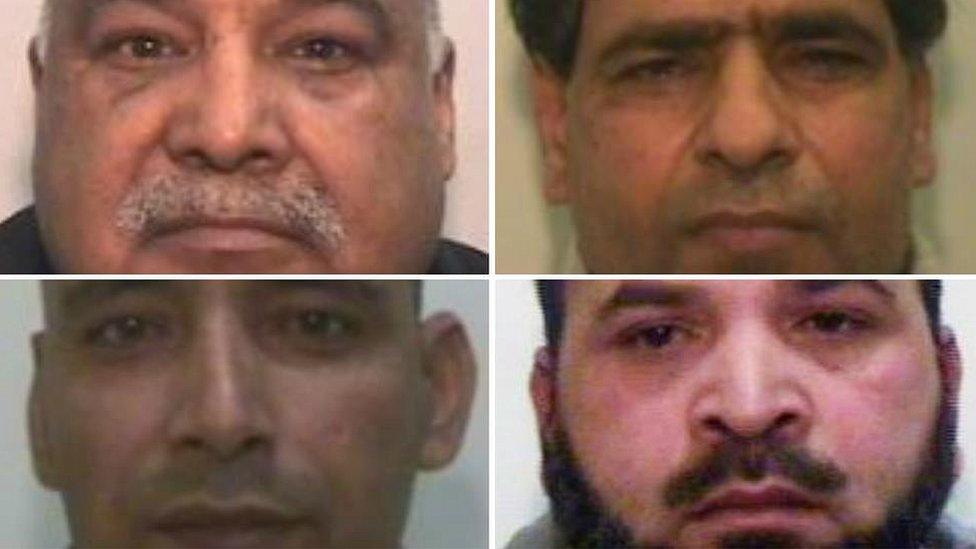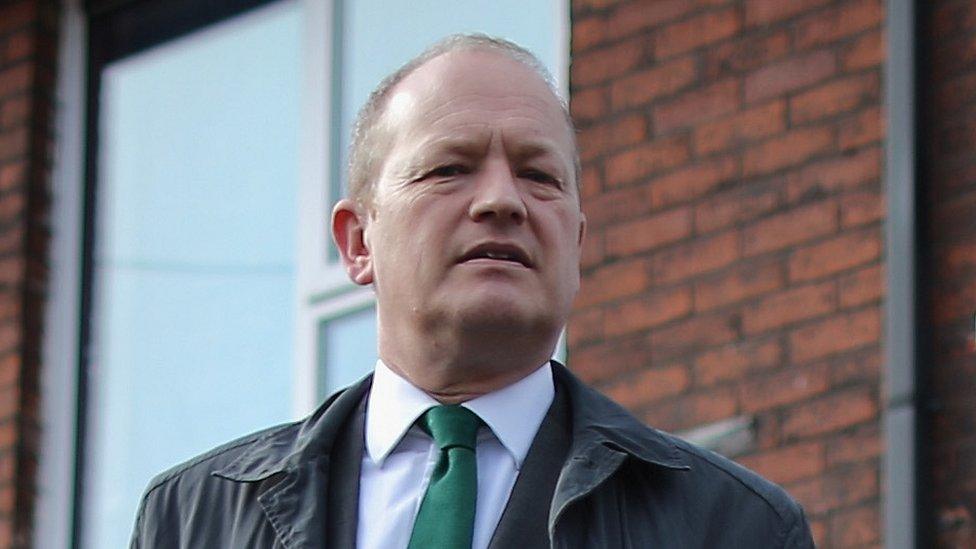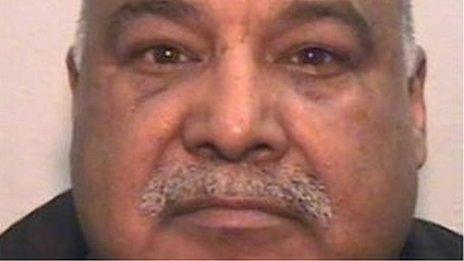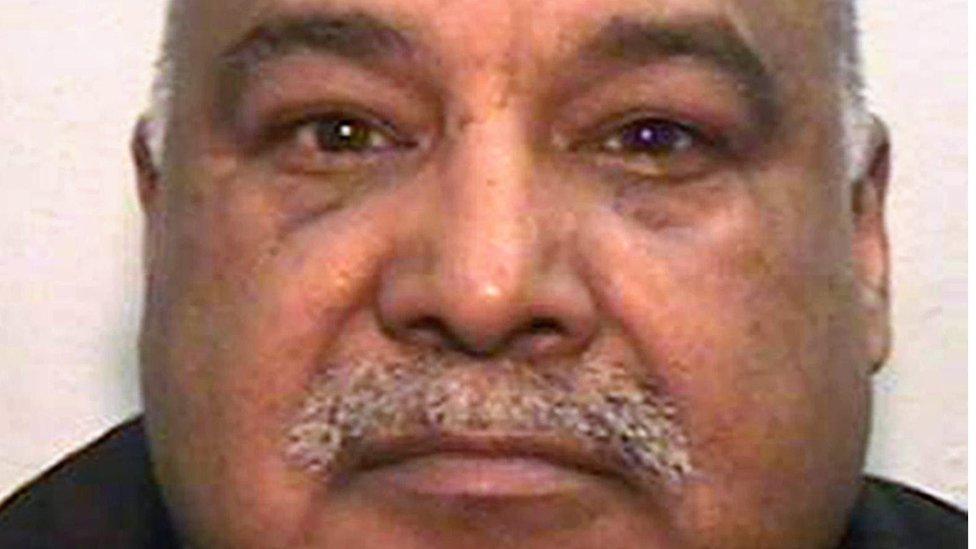Rochdale sex grooming gang citizenship appeal fails
- Published

(Clockwise from top left) Shabir Ahmed, Abdul Aziz, Adil Khan, Abdul Rauf face deportation to Pakistan
Four members of a child sex grooming gang have lost a legal battle to maintain British citizenship.
Shabir Ahmed, Adil Khan, Abdul Rauf and Abdul Aziz, all from Rochdale, challenged a government move that could pave the way for them to be deported to Pakistan.
Ringleader Ahmed, 63, previously claimed his convictions were a conspiracy to "scapegoat" Muslims.
Rochdale's MP called for the men to now be deported "as soon as possible".
Simon Danczuk said: "We welcome many people coming to the UK to contribute, but if they break the law they should lose their right to live here.
"Foreign-born criminals should not be able to hide behind human rights laws to avoid deportation."

Rochdale MP Simon Danczuk called for the men to be deported "as soon as possible"
The four were among nine men from Rochdale and Oldham who were jailed in 2012 for exploiting girls as young as 13.
Ahmed was convicted of two rapes, trafficking, conspiracy and sexual assault.
Described by a judge as a "violent, hypocritical bully", he led a group of men who plied girls with drink and drugs before "passing them around" for sex.
Ahmed's crimes included giving a 15-year-old girl he had raped on several occasions to a young man he referred to as his nephew, who also raped her.
He is currently serving a maximum imprisonment of 22 years.
Trafficking
Khan, Rauf and Aziz were found guilty of conspiracy to engage in sexual activity with a child and trafficking for sexual exploitation.
They were given jail sentences of between six and nine years but have since been released on licence.
All the men are of Pakistani nationality who acquired British citizenship by naturalisation.
The case centred on a proposal by then Home Secretary Theresa May to deprive them of British citizenship on the grounds that it would be "conducive to the public good".

Some vulnerable girls in Rochdale were plied with drinks and drugs by groomers
Immigration minister Robert Goodwill said: "This was an appalling case - which is why we took action to deprive these criminals of their UK citizenship.
"We welcome the court's finding and will now seek their deportation.
"Citizenship is a privilege, not a right, and it is right that the Home Secretary can deprive an individual of their citizenship where it is believed it is conducive to the public good to do so."
'Repulsive'
At an earlier hearing, Ahmed, who came to the UK in 1967 aged 14, said he had four children in the country and £83,000 in a bank account.
He said he was convicted by "11 white jurors" and said: "It's become fashionable to blame everything on Muslims these days."
Handing down the judgment on Thursday, Mr Justice McCloskey, described the men's crimes as "shocking, brutal and repulsive".
He dismissed five different grounds of appeal, including an argument by three of the men that the government had failed in a duty to safeguard and promote the welfare of their children.
The ruling also dismissed a complaint of a "disproportionate interference" with the men's rights as EU citizens and rejected claims concerning human rights laws.
Appeal
Despite the ruling, the legal battle to deport the men could continue as there are further steps the Home Office must complete.
The four men could also appeal on legal grounds, although permission to appeal is granted in fewer than 10% of cases.
Mr Justice McCloskey had previously criticised the men's lawyers for "frankly shameful" behaviour, saying they had failed to submit the necessary papers to the court and had repeatedly asked for adjournments.
Thursday's ruling said the tribunal had since received apologies and explanations.
- Published6 February 2017

- Published16 February 2016
